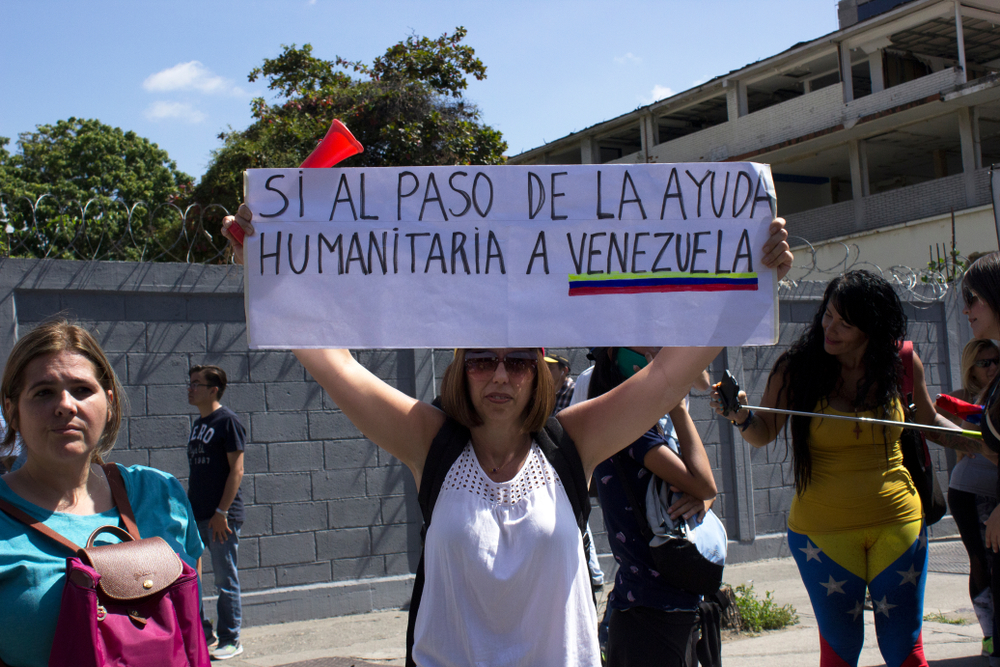Blessed with abundant oil reserves, Venezuela was once South America’s richest country. Now, it is a shell of a nation, facing the worst humanitarian crisis in the Western hemisphere. More than 3 million people have fled the country, escaping rising violence, food shortages, political persecution, and crippling 1,370,000-percent inflation that makes any amount of money people may have worthless. Things are so dire that, according to a report from the Organization of American States, newborns have a better chance of survival in Syria than they do in Venezuela.
Still, humanitarian aid has become a political affair.
On one side, the anti-democratic President Nicolás Maduro has shut down the country’s borders to avoid aid from reaching his country. He denies that his fellow citizens are facing food shortages. Mr. Maduro claims that humanitarian aid operations are, in fact, a Trojan horse from Uncle Sam to undermine his administration and oust him from power. In his eyes, the operation would facilitate a transition to hand the country’s reins to Juan Guaidó, the opposition leader who declared himself interim president—and has been recognized as such by over 50 countries.
In all fairness, Mr. Maduro is not wrong about that.

